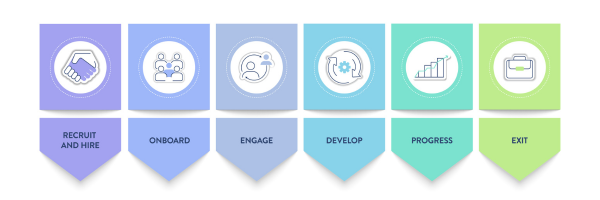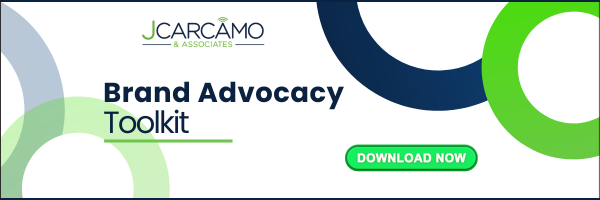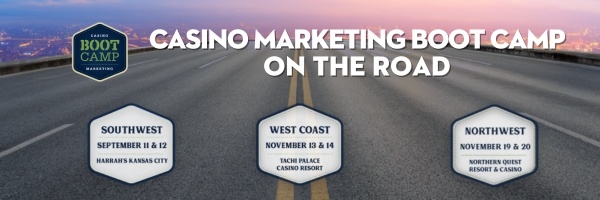Attracting and retaining top talent is more challenging than ever. The current labor market has left many casinos understaffed and struggling to maintain the exceptional service that guests expect and that casinos want to provide. Yet, amidst these challenges lies an often-overlooked solution: your employees. They are the living embodiment of your brand, the frontline ambassadors who shape guest experiences and drive lasting loyalty.
So, how do you transform your workforce into a passionate, engaged team that consistently delivers on your brand promise? The answer lies in a strategic approach to internal branding beyond logos and taglines to create a workplace culture where employees feel valued, empowered, and deeply connected to your casino’s mission.
However, attracting and retaining the right talent is equally crucial. It is not just about filling positions; it is about finding individuals who align with your casino’s values and culture, are passionate about the industry, and are eager to contribute to your brand’s success. By integrating your brand identity into your recruitment and hiring processes, you can attract candidates who are not only qualified but also genuinely excited to be part of your team.
A key component of this type of successful employer branding is intentionally mapping out the employee journey, like how you would meticulously craft a customer journey map. By understanding and optimizing each touchpoint of the employee experience, from recruitment and onboarding to ongoing development and retention, you can create a seamless and positive journey that fosters loyalty, advocacy, and a thriving brand.
Understanding the Employee Journey
To effectively map the employee journey and align it with your brand, it is essential to understand the concept of journey mapping itself. Journey mapping visually represents a person’s process to achieve a goal. In the context of customer experience, it is often used to understand how customers interact with a brand, from initial awareness to post-purchase.
The same principles can be applied to your employees. By mapping the employee journey, you gain valuable insights into their experiences at each touchpoint, from the moment they first encounter your brand as a potential employer to their eventual departure. This holistic view allows you to identify areas where you can enhance their experience, foster engagement, and ultimately strengthen your brand from the inside out.

Recruit and Hire: Showcasing Your Brand’s Unique Appeal
The first step in attracting the right talent is clearly articulating your casino’s employer brand. What makes your casino a great place to work? What unique benefits and opportunities do you offer? Showcase your company culture, values, and mission in your job postings, career website, and social media presence. Highlight employee testimonials and success stories to give potential candidates a glimpse into the employee experience.
During recruitment, ensure that your interactions with candidates reflect your brand’s personality and values. Whether it’s a friendly and welcoming tone in your communications or a focus on cultural fit during interviews, every touchpoint should reinforce your brand identity.
Onboard: Setting the Stage for Brand Immersion
The onboarding process is a critical opportunity to immerse new employees in your brand culture. Go beyond the standard paperwork and orientation sessions. Create an engaging and interactive onboarding experience introducing new hires to your casino’s history, values, and mission. Encourage them to connect with their colleagues and build relationships that foster a sense of belonging.
Engage: Fostering a Sense of Community and Purpose
Once employees are on board, keeping them engaged and connected to your brand is crucial and can be achieved through any of the following.
- Regular communication and feedback channels to ensure employees feel heard and valued.
- Recognition and rewards programs to acknowledge and celebrate their contributions.
- Team-building activities and social events to foster camaraderie and a sense of community.
- Opportunities for employees to share their ideas and feedback to promote a culture of innovation and continuous improvement.
By actively engaging your employees, you boost morale and job satisfaction and strengthen their connection to your brand.
Develop: Investing in Growth and Advancement
Investing in employee development is an investment in your brand. Provide ongoing training and learning opportunities that enhance employees’ skills and deepen their understanding of your brand’s values and goals. Encourage employees to take ownership of their development and provide them with the resources and support they need to succeed.
Consider offering mentorship programs, leadership development courses, or tuition reimbursement for relevant education. Investing in your employees’ growth demonstrates your commitment to their success and creates a culture of continuous learning and improvement.
Progress: Recognizing and Rewarding Achievement
As employees develop and grow within your organization, it is essential to recognize and reward their achievements. Doing so reinforces positive behavior but also strengthens their connection to your brand. Implement a robust performance management system that provides regular feedback, sets clear expectations, and rewards exceptional performance.
Consider offering opportunities for advancement, such as promotions or lateral moves, to keep employees challenged and motivated. By providing a clear path for career progression, you demonstrate your commitment to their long-term success and encourage them to invest their talents in your brand.
Exit: Learning from Departures
Even when employees leave your organization, it is vital to maintain a positive brand image and gather valuable feedback. Conduct exit interviews to understand their reasons for leaving and identify areas where you can improve the employee experience. This information can be invaluable in refining your employee journey map and ensuring that future employees have a more positive and fulfilling experience.
Mapping out each stage allows you to identify pain points, bottlenecks, and opportunities for improvement. By understanding the employee journey, you can proactively address issues, enhance the overall experience, and create a more engaged and loyal workforce.
Mapping the Employee Journey: A Step-by-Step Guide
Mapping the employee journey is a strategic process that requires careful planning and execution. Here’s a step-by-step guide to help you get started. By following these steps, you can create a comprehensive and actionable employee journey map that will help you attract, engage, and retain top talent in the competitive casino industry.
- Define Your Goals: What do you hope to achieve by mapping the employee journey? Are you looking to improve employee engagement, reduce turnover, or enhance your employer brand? While it is essential to understand the entire journey, clearly defining your goals will help you focus your efforts and measure your success.
- For Each Stage of the Journey, Identify Key Touchpoints: What are the fundamental interactions and experiences employees have with your casino throughout their journey? This could include everything from the initial job application and interview process to onboarding, training, performance reviews, and exit interviews. Include any resources, including people and materials used or distributed.
- Gather Employee Feedback: The most valuable insights into the employee journey come directly from your employees. Conduct surveys, focus groups, and one-on-one interviews to gather feedback on their experiences at each touchpoint. Ask open-ended questions to encourage them to share their thoughts and feelings.
- Analyze and Map the Journey: Once you’ve gathered employee feedback, analyze the data to identify patterns, trends, and pain points. Use this information to create a visual map of the employee journey, highlighting key touchpoints and areas for improvement.
- Develop Actionable Strategies: Based on your goals and the journey analysis, develop actionable strategies to enhance the employee experience at each touchpoint. This could involve improving communication, streamlining processes, providing additional training or resources, or creating new programs to foster engagement and recognition.
- Implement and Monitor: Implement your strategies and track their impact on employee engagement, satisfaction, and retention. Regularly review and update your employee journey map to ensure it remains relevant and practical.
Remember, the employee journey is not a one-time project but an ongoing process requiring continuous attention and improvement.
Measuring the Impact of Employee Journey Mapping
Measuring the impact of your employee journey mapping efforts is crucial to ensure they are effective and yield tangible results. By tracking key metrics and analyzing data, you can gain valuable insights into the effectiveness of your strategies and make data-driven decisions to improve the employee experience continuously.
Key Metrics to Track
- Employee Engagement Scores: Measure employee engagement levels through surveys and feedback tools. Higher engagement scores often correlate with increased productivity, lower absenteeism, and improved customer service.
- Net Promoter Score (NPS): Gauge employee satisfaction and loyalty by asking them how likely they are to recommend your casino as a workplace. A high NPS indicates a positive employee experience and a strong employer brand.
- Employee Turnover Rate: Track the percentage of employees who leave your organization within a given period. A high turnover rate can signal issues with your employee journey and may require further investigation.
- Time to Fill Vacancies: Measure the average time to fill open positions. A shorter time to fill indicates a strong employer brand and efficient recruitment processes.
- Quality of Hire: Assess the performance and impact of new hires. High-quality hires indicate your recruitment and onboarding processes are effective in attracting and selecting the right talent.
- Employee Advocacy: Monitor employee-generated content on social media and other platforms. Positive reviews, testimonials, and brand mentions indicate high employee advocacy and a strong brand culture.
In addition to tracking employee-specific metrics, it is crucial to assess the impact of your employee journey mapping efforts on broader brand perception and business outcomes. This could include:
- Customer Satisfaction Scores: Measure customer satisfaction levels through surveys and feedback mechanisms. A positive employee experience often translates into better customer service and higher satisfaction ratings.
- Revenue Growth: Track revenue trends over time. Engaged and motivated employees are more likely to provide exceptional service, leading to increased customer spending and loyalty.
- Brand Reputation: Monitor online reviews, social media mentions, and industry awards. A strong employer brand and positive employee sentiment can enhance your casino’s reputation.
The ROI of Investing in Employee Experience
Investing in employee journey mapping and internal branding is not just a feel-good initiative but a strategic business decision with a measurable return on investment. Creating a positive employee experience can reduce turnover costs, improve productivity, enhance customer satisfaction, and drive revenue growth.
Remember, the employee journey is an ongoing process. Continuously monitor your metrics, gather feedback, and adapt your strategies to ensure your employees remain engaged, motivated, and committed to your brand’s success.




Recent Comments